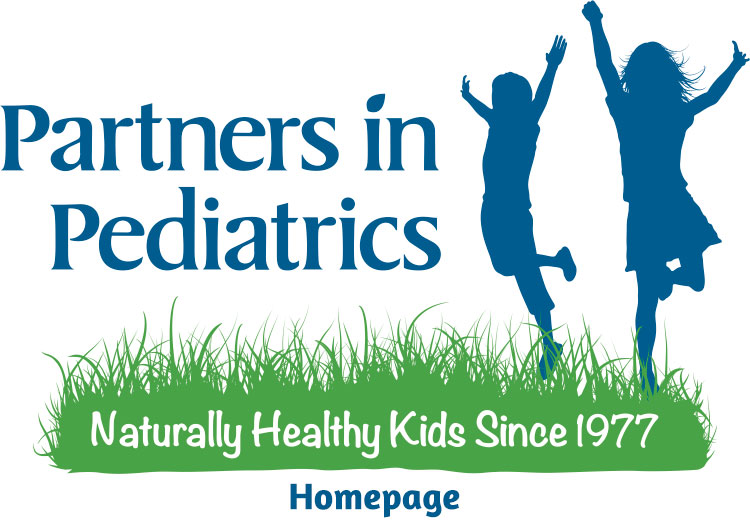Pregnancy Tips From Your Denver Holistic Pediatrician
So you are pregnant and preparing to have a family in Denver–now what? Pregnancy can be one of the most amazing times in a woman’s (and her partner’s) life! It is a perfect time to reflect on the wonders of nature, evidenced by your incredible ability to create and nuture another human being. We are here to provide some tips and recommendations to help achieve the goal of a healthy pregnancy for both the expectant mother and her child. After all, we are your Denver pediatrician and medical home, doing our very best to provide you with quality, integrative pediatric care! We are pleased to highlight the work and thoughts of our physician assistant (and father of two boys), Ben Jessen, in this blog. Many of you have had the pleasure and benefit of working with Ben in our practice. For those who have not, the following recommendations and tips are set forth in a clear and concise manner in Ben’s recent book, Obvious Parenting, Seven Simple Keys to Supporting Wellness. It is well worth a read!
Nutrition
It is critical to the baby’s health that the mother be healthy. Although a healthy lifestyle generally requires the mother to eat foods including a wide variety of fruits, vegetables, whole grains and protein sources, there are some specific nutrients to think about. (Be sure to discuss the specifics with your integrative pediatrician.)
- Folic Acid (folate) and Choline: In order to reduce birth defects of the brain, spine and spinal cord (neural-tube defects), an expectant mom should be getting approximately 800 micrograms of folic acid each day. Folic acid is found in green leafy vegetables, citrus fruits, beans and prenatal vitamins, if necessary. Another important nutrient that helps prevent neural-tube defects is choline, which is found in seeds, soybeans, collard greens, shrimp, eggs and poultry. While pregnant, you should get around 450 mg choline per day.
- Iron: Iron is used to make hemoglobin in your red blood cells, which carries oxygen to the body’s tissues. When you are pregnant, your need for iron doubles due to increased blood volume. Try for about 27 mg of iron per day via nuts, dried fruit, collard greens, meats and fortified cereals. Iron from plant sources doesn’t absorb as well as iron from animal sources and, for that reason, should be combined with a vitamin C supplement or vitamin C-rich foods, such as citrus fruits and vegetables like bell peppers, kale and broccoli.
- B-Vitamins: Besides folic acid, there are seven other B vitamins that are important during pregnancy because they help your body use and produce energy. B vitamins may be found in fruits, vegetables and beans. Because B vitamins are difficult to find in plant products, you should consider taking a supplement if you are a vegetarian or vegan. Most prenatal vitamins include all of the relevant B vitamins.
- Healthy Fats: Fats are essential for the development of the nervous systems and cell development. It is important to eat a diet rich in unsaturated fats (poly- and mono-unsaturated) from fish, nuts, oils and soybeans. Conversely, limit saturated fats, particularly from red meats, and completely avoid trans-fats, like partially hydrogenated oils, found in many packaged foods.
- Protein: Proteins are the building blocks for growth and development, and your body has an increased need for proteins during pregnancy. Try to consume about 60-70 grams of protein each day by means of nuts, seeds, beans, tofu, whole grains, dairy and meats.
- Hydration: Because of an increase in blood volume during pregnancy, you should drink around 10 cups (about two and a half liters) of water per day. We suggest drinking most of your water intake earlier in the day to avoid interrupting your sleep with multiple trips to the bathroom at night. Sleep is important, too!
- Calories: Talk to your health care provider about your specific weight goals during pregnancy. (Being obese can increase the risk of a stillbirth by 25 percent, and being underweight can slightly increase the risk of having a premature birth or underweight baby.) Unless you are already under or over your ideal weight for your age and height, you should generally eat around 300 more calories per day during your second trimester, and around 450 more calories per day during your third trimester. These guidelines should allow for a weight gain of around 25-35 pounds during pregnancy.
Things to Limit or Avoid While Pregnant:
- Alcohol: Do not harm your baby–avoid all alcohol as there is no safe amount during any point of a pregnancy.
- Caffeine: Limit your caffeine intake to less than 200 mg (2 cups of coffee) per day to decrease the risk of miscarriage and low birth weight.
- Preformed Vitamin A: Pregnant women should limit preformed (active form) Vitamin A to less than 2,500 IU per day to avoid an increased risk of birth defects. Preformed Vitamin A comes from vitamins, certain medications, eggs, milk and certain seafood such as cod, salmon and oysters. Vitamin A from beta-carotene (such as is found in carrots, spinach, squash and peas) has not been linked to birth defects.
- Fish High in Methylmercury: These include swordfish, shark, king mackerel, tilefish, tuna (that is not skipjack or light chunk tuna in water packing), shrimp, salmon and cod.
- Foods With a Higher Risk of Bacterial Contamination: Avoid foods that carry a higher risk of food-borne illnesses (think food poisoning!), including unpasteurized dairy, uncooked meats, uncooked eggs, and fresh sprouts.
Exercise During Pregnancy
Having kids takes energy–be prepared! Stay active during pregnancy, unless your health care provider suggests otherwise. (Talk to your health care provider if you have any concerns or questions.) Exercising can help improve sleep, muscle tone, strength and endurance, which, in turn, will help you prepare for labor and delivery and help with recovery from delivery. Exercising can also help reduce the stress on your pelvis and lower back as your pregnancy develops and physical imbalances occur.
Safe exercises for expectant moms include prenatal yoga, walking, swimming, cycling, aerobics and running. Be aware that you can get over-heated more easily when pregnant! Avoid activities that increase the risk of falling, including skiing, horseback riding and contact sports, and avoid scuba diving due to its inherent risks. It is best to avoid exercises on your back after the first trimester of your pregnancy because the weight of your uterus could possibly affect blood flow to your brain and the baby. You should be able to have a conversation while exercising–if you can’t, slow down! There are no specific heart rate goals during pregnancy.
Sleep During Pregnancy
You need lots of sleep to support you and your growing baby. (Routinely getting less than six hours of sleep a night can increase the risk of having a cesarean (c-section) and a longer labor.) Get used to taking naps when you can–a skill that will come in handy once your baby arrives! You should preferably sleep on your left side and use extra pillows in supportive positions, such as between your arms and thighs. If you have a history of sleep apnea, make sure it is controlled in order to avoid an increased risk of high blood pressure and preeclampsia. Talk with your health care provider if you feel your sleep is being interrupted by things such as increased urinary frequency, heartburn, sinus congestion and restless leg syndrome. As your providers practicing integrative medicine, we are here to help!
Well-Care: Prenatal Visits
Prenatal visits are importantly used to keep track of how the expectant mom and her growing baby are doing. The first prenatal visit is usually around the eighth week of pregnancy and includes measurements of your blood pressure, height, weight, a physical exam (including a pelvic exam), and confirming the pregnancy via urine or blood. The provider may also check for bacteria in your urine, check your blood type (Rh factor), get a complete blood count and check for infections, such as Hepatitis B, HIV, syphilis and rubella.
Your provider will determine the frequency of prenatal visits, but they generally include monthly visits under 28 weeks of pregnancy, biweekly (every two weeks) visits from 28 to 36 weeks, and weekly visits after the 36th week of pregnancy.
Be sure to talk with your provider about the vaccines you should have before pregnancy and which ones are safe during your pregnancy. You can get most vaccines when you are pregnant, except live vaccines (including measles, mumps and rubella (MMR)), chicken pox (Varivax) and FluMist. It is recommended that you receive a Tdap (tetanus/whooping cough) shot and flu shot during every pregnancy. Your body produces antibodies after receiving a vaccine, some of which can pass through to your baby, protecting them when born. A prenatal visit is also a good time to ask about childhood vaccines and their recommended schedule. As always, PIP is willing to work with families who desire non-traditional vaccines schedules for their children, so if you have any special wishes in this regard, please don’t hesitate to let us know.
Spirituality During Pregnancy
As your favorite holistic pediatrician in Denver, we would be remiss if we did not mention the importance of the mind-body connection in pregnancy. There is much more than just a physical connection with the child in your body. When you fill yourself with positive thoughts and loving energy, you are automatically giving that love and optimism to your baby. (On the other hand, stressful thoughts may cause a physical stress response that can include increased heart rate, increased blood pressure and the release of stress hormones that can affect the baby.) Be grateful for the amazing journey of your pregnancy, rather than focusing on the discomforts. Take advantage of “expecting” and attend pregnancy-related classes, especially when pregnant with your first child. The physical and spiritual oneness with you and your baby is such a special gift. Remember to share it with others, especially your partner and those with whom you are close!
Thanks to Ben Jessen for the valuable thoughts and advice! His book, Obvious Parenting, really is a fantastic resource for parents at any stage in the game, and we highly recommend you check it out. As always, please contact us, your favorite integrative pediatric practice, with any questions or concerns you may have whether before or during a pregnancy. It is our pleasure and honor to assist you in your journey toward becoming a parent in Metro Denver!







Leave a Reply